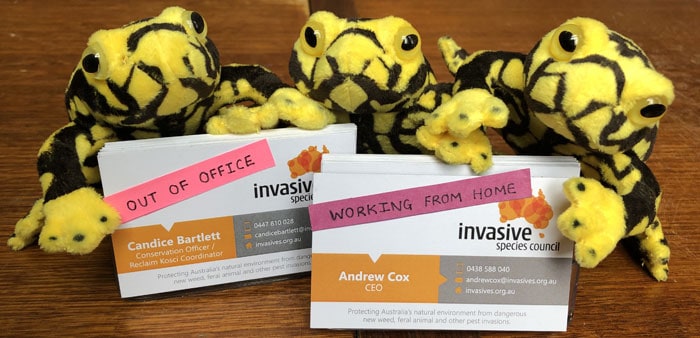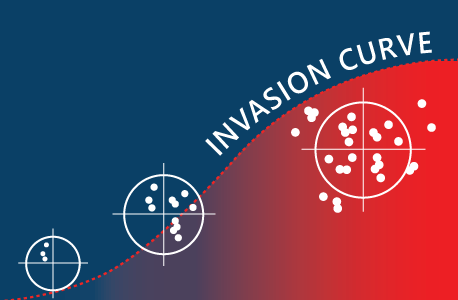
The rapid spread around the world of the deadly COVID-19 virus highlights the fact that our globally connected world has a downside – the rapid and mass movement of people and trade can supercharge the spread of weeds, pests and diseases.
We saw that when the native plant killing disease myrtle rust arrived in Australia, and now, tragically, we are seeing it with the spread of COVID-19, only this time hundreds of thousands of human lives are at risk.
While global travel is suspended, it will ultimately resume. Global trade will also grow again. The risks of new and more dangerous environmental invasive species entering Australia and wreaking havoc on our wildlife and the places we love is not a threat that will go away.
That is why it is vital we keep up our work pushing for stronger biosecurity to keep out dangerous new invasive species that could breach our borders, and to protect Australia from invasive species that already have a foothold in our country .
Since our formation in 2002, our staff and volunteers have always operated from home offices. Our decentralised, low overhead model of working means we already have long-standing systems in place to work in isolation and that disruption to our operations will be minimal.
What changes is how we continue to build relationships and share our knowledge with decision-makers and the broader community. That task is now so much harder.
Our supporters and allies will need to come together virtually. Our governments will have new, pressing priorities to keep us all safe from the COVID-19 pandemic. The natural environment and its threats will get less attention.
We are up to the challenge in these changing times. For while our personal lives, our work and our relationships are disrupted, introduced species will continue to spread and multiply and create more damage to our natural world.
We’re here to stop that happening. It’s our mission.
We encourage you to continue to support our work in this difficult period.







